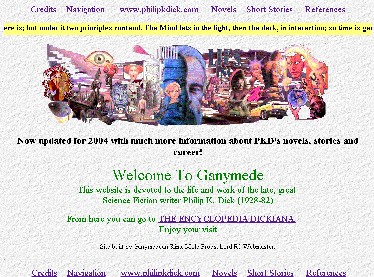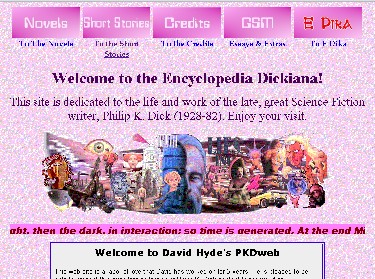In the comments section, please add your your review, your criticism or a link to as post when you have much more to write than would fit in a comment.
My favorite Philip K. Dick book is Valis and when I began reading this novel I used that book like a guide post in following along with the path of the main character who has an apt surname of Perceval. There were other narrative stylings like using the names of Philip K. Dick stories in the text and a code on the back of the book which I have little idea how to solve. But the further I read into the novel, the less I noticed these because I became involved in the plot.
The novel follows the physical and spiritual journey of Nikki who guided by the sprit of Philip K. Dick goes to New Mexico and California to find the missing manuscript that was in Dick’s safe when his house was broken into. I loved the meshing of fact and fiction in this book and the scenes of Philip K. Dick’s death and the break-in of his house are written beautifully.
The level of detail in the book makes it seem very dense and also gave me the sense that this is an autobiographical novel or at least one which describes parts of the author’s life which can be both a good thing and a bad thing. The elements used from the author’s life make the book seem very realistic when the strange events are happening to the main character but also box the writer into getting on the page exactly what happened to them which I think bogged down the novel.
The novel was a slow start for me and then picked up when Nikki was deciding to start her journey and then bogged down again until she was in New Mexico and picked up more and more coinciding with her revelations. I also think the first part of the novel concerning Dr. Gribbin didn’t need to be included. I believe the need to get everything down like it happened caused these areas of slow narrative where there are many questions, few answers for the reader and fewer for Nikki.
Overall, the book is well worth the purchase and the time that it takes to read it. I recommend this but more so only after reading Valis especially because it takes on much more meaning connected to that work and Dick’s later two novels. There was real depth in the end of the novel and not a cop out or sleight of hand that I was afraid may occur. I didn’t feel cheated by the ending.
I want to love this book but I only really like it a lot and I’m very glad that I read it. My preference on the length of books is about 200 pages and this one (over 300 pages) had some parts that I think could have been cut to streamline the narrative. I’m glad that she wrote it even though it is geared in some ways at a specialized audience and I’m glad that I had the opportunity to read it.
Other Reviews
Amazon.com Reviews
Goodreads.com Reviews
Dickhead: Local writer summons Philip K. Dick in novel
PKD Otaku 21
PKD Otaku 22
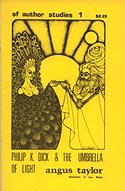
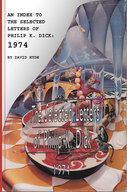
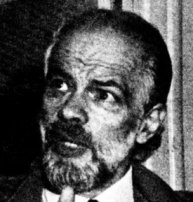 Just over a month ago Umberto Rossi, the current curator (as I like to think of him) of VALBS, approached me to see if he could move the site over to philipdick.com to provide a permanent location for the site because he was having hosting issues. The files provided were converted into the pages of the site and combed over to fix any errors found in the conversion. And there were many! Finally we are at the point where we are confident that most of the issues with the conversion have been fixed and have made the site live as the new permanent home for VALBS. There will be a transition period in which both locations will be available but I hope that it will be short and most of the traffic will come to this site and not the older version.
Just over a month ago Umberto Rossi, the current curator (as I like to think of him) of VALBS, approached me to see if he could move the site over to philipdick.com to provide a permanent location for the site because he was having hosting issues. The files provided were converted into the pages of the site and combed over to fix any errors found in the conversion. And there were many! Finally we are at the point where we are confident that most of the issues with the conversion have been fixed and have made the site live as the new permanent home for VALBS. There will be a transition period in which both locations will be available but I hope that it will be short and most of the traffic will come to this site and not the older version.

